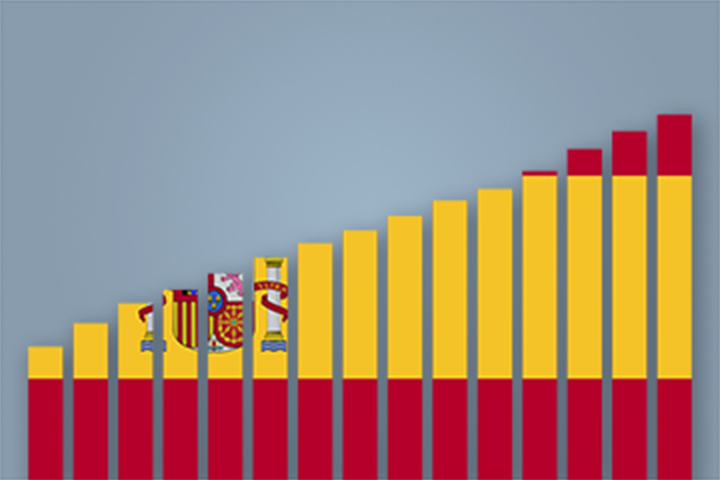An offer, an option agreement or a contract: ending the confusion

Keytrade Bank
keytradebank.be
April 17, 2025
(updated July 01, 2025)
3 minutes to read
Thinking about buying a home and does it all feel new and strange? Make sure you’re clear on what’s what by setting everything out in chronological order. First comes the offer, possibly followed by an option agreement, and ultimately, the contract. These three terms represent three very different moments in the buying process. This blog explains the specific differences and describes the various rules that apply to you and the seller respectively.
1. What is an offer on a house?
When you make an offer, you are expressing your willingness to buy the house from the seller at a specific price. It is the very first step in the negotiation process. Be aware that a formal offer is binding if there are no additional conditions. That means the seller can simply accept the offer if they find the proposed price acceptable.
Does a verbal offer count too?
To avoid disputes further down the line, you should always submit your offer in writing. That way, you’ll have clear proof of when you made your offer and under what conditions.
Be aware that verbal offers can also be binding. If the seller can prove that you intentionally made a verbal offer, through a recorded phone call or video, for example, they can enforce the sale.
Do not make an offer unless you are absolutely sure you want to buy.
Before making an offer
- Determine your maximum budget in advance. Ask a financial expert for advice. Remember to also take into account closing costs such as registration duties and other fees.
- Add any contingencies such as ‘subject to obtaining a loan’. That way, you will not be bound by your offer if you cannot obtain financing.
- An offer is not the same as a contract. The seller can decide to refuse your offer, make a counter-offer or accept it. No official sale has taken place until a contract has been signed.
2. What is an option agreement?
With an option agreement, you have a certain period of time in which to decide whether you want to buy a house without the seller being able to sell it to anyone else in the meantime.
In practice, not every seller will be eager to agree to this – particularly if they anticipate a scenario with several potential buyers bidding against each other. An option agreement can still be worth suggesting for various reasons:
- More time to arrange financing
- A detailed comparison to other properties you’re also interested in
- A thorough inspection to check for hidden defects, building violations, flood risk, structural problems and so on, engaging professional experts if necessary
How does an option agreement work?
Together with the seller, you agree on a timeframe within which you will decide whether or not to buy the house. This can vary from a few days to weeks or even months.
Again, take care to include all contingencies for an actual sale, such as obtaining a loan or structural assurances. This provides both the buyer and the seller with more security.
While an option agreement needn’t involve additional costs, the seller may also ask for a deposit. After all, they risk missing out on the certainty of a sale to someone else if you decide you prefer a different house after all.
Whether the seller returns your deposit afterwards will depend on the specifics of your agreement. If you decide to buy the house, the seller will deduct the amount of your previous deposit from the purchase price. If you decide against the purchase, the contingency clauses will determine whether you get your money back. For example, if the sale was dependent on obtaining a loan and you weren’t able to do so, the seller must return your deposit.
3. What is a contract?
The contract or purchase-and-sale agreement is the penultimate step towards your future home and the ultimate basis for the final deed of sale.
This official document contains all the terms and conditions agreed between the buyer and the seller that should ultimately lead to the final sale. It is not compulsory to involve a notary or broker, although it is certainly advisable to have an expert look over the content for you.
What information should the contract contain?
- The exact selling price
- The identities of the buyer and seller
- A description of the property
- The payment terms and date of the notarised deed
- Any contingency clauses
- Any earnest money deposit (usually 5-10% of the purchase price) placed in escrow with the notary
What if you want to cancel the sale after all?
Did you fail to agree on an additional cooling-off period with the seller or not include any contingency clauses in the contract? In that case, the sale is considered final.
If you do decide to back out, the seller will be entitled to keep any agreed deposit. If there is no deposit, you may be required to pay a fine, which can be up to 10% of the total purchase price for the house. For a house worth €300,000, that would be €30,000, so a considerable amount.
Is it a deal?
After the contract has been signed, the notary still has to draw up the notarised deed. They must do so within four months. Until then, the house remains the property of the seller. After that, it has officially changed hands. Congratulations!
Still looking for the most affordable mortgage?
Are you currently working on the financial aspects of your search for a new home? Be sure to visit Keytrade Bank and explore Keyhome, our online mortgage, which Testaankoop has ranked as best in test for three consecutive years (2023, 2024 and 2025):
- Receive the best interest rate right away
- Avoid weeks of back-and-forth between banks
- Enjoy the lowest rate on the market


